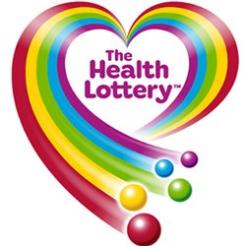Sir Stuart Etherington has written to the Secretary of State for Culture, Olympics, Media and Sport requesting a review of the impact of the Health Lottery, one year after its launch.
In a letter dated 31 August, the chief executive of the NCVO said October, being one year since the Health Lottery began operating, would be "an appropriate juncture to reflect" on a number of issues relating to the lottery provider, including the proportion of funds it allocates to charity.
Sir Stuart said that the NCVO welcomes a more diverse lottery landscape and the potential for extra funds for good causes that this generates, but asks that the proportion of funds going to charity not be jeopardised:
"It is of great importance that the Health Lottery does not set a dangerously low precedent of reducing the acceptable levels of lottery funds that must go to charity," he told Jeremy Hunt, the Secretary of State for Culture, Olympics, Media and Sport.
The Health Lottery, which is comprised of 51 society lotteries, currently distributes around 20.3 per cent of its takings to good causes. Currently society lotteries are obliged to give over 20 per cent to good causes. But in his letter Sir Stuart suggested a requirement for the proportion of lottery funds going to charity be in line with that of the National Lottery, at 28 per cent.
NCVO's proposal is in addition to a report published in July, which was commissioned by the DCMS, that proposed a "moderate increase" in the proportion society lotteries must give to good causes.
Since its launch in October last year the Health Lottery has been in dispute with the National Lottery which claimed it was effectively competing as another national lottery, something which is "against the spirit" of gambling law. However in August, National Lottery operator Camelot lost its High Court challenge to the Gambling Commission's decision to license the Health Lottery.
Responding to Sir Stuart's letter, a spokeswoman for the Health Lottery pointed to a review already commissioned by the DCMS that, she said, concluded the Health Lottery is "good for the sector".
The impact assessment by Nera Economic Consulting, which was commissioned by DCMS, the Gambling Commission and the National Lotteries Commission was presented to ministers in April and used as evidence against the National Lottery's challenge of the Gambling Commission. It found that the effect on the ticket sales of the National Lottery from the introduction of the Health Lottery equated to no more than £300,000 a week.
Despite losing its High Court battle Camelot remains concerned over a perceived "loophole in the Gambling Act 2005, which has been used by the Health Lottery to position itself as a direct rival to the National Lottery". Welcoming Sir Stuart's call for a review, the lottery operator advised it should also look at this issue.
“We welcome Sir Stuart’s call for government action. This mirrors our own call for the government to act following the recent High Court decision. However, and as we’ve said all along, if there is to be a review it’s absolutely imperative that it doesn’t focus solely on sales impact.
"Looking at sales in isolation ignores the serious ongoing concerns that have been raised about the Health Lottery and the dangerous precedent that would be set if, through political inaction, other commercial operators were encouraged to set up similar mass-market lotteries as direct rivals to the National Lottery.
"It is now imperative that the government acts to close this loophole, and to ensure that the law mirrors the intention and will of Parliament that there should be only one National Lottery. We are already taking private soundings from Government on what it intends to do."








